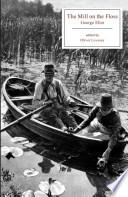
“More helpful than all wisdom is one draught of simple human pity that will not forsake us.”
The Mill on the Floss (1860)

The Mill on the Floss is a novel by George Eliot , first published in three volumes in 1860 by William Blackwood. The first American edition was published by Harper & Brothers, Publishers, New York.
“More helpful than all wisdom is one draught of simple human pity that will not forsake us.”
The Mill on the Floss (1860)
“Anger and jealousy can no more bear to lose sight of their objects than love…”
Book I, ch. x
The Mill on the Floss (1860)
“We could never have loved the earth so well if we had had no childhood in it…”
The Mill on the Floss (1860)
“Nature repairs her ravages, — repairs them with her sunshine, and with human labor.”
The Mill on the Floss (1860)
Context: Nature repairs her ravages, — repairs them with her sunshine, and with human labor. The desolation wrought by that flood had left little visible trace on the face of the earth, five years after. The fifth autumn was rich in golden cornstacks, rising in thick clusters among the distant hedgerows; the wharves and warehouses on the Floss were busy again, with echoes of eager voices, with hopeful lading and unlading.
And every man and woman mentioned in this history was still living, except those whose end we know.
“War, like other dramatic spectacles, might possibly cease for want of a "public."”
The Mill on the Floss (1860)
Context: It is doubtful whether our soldiers would be maintained if there were not pacific people at home who like to fancy themselves soldiers. War, like other dramatic spectacles, might possibly cease for want of a "public."
“The happiest women, like the happiest nations, have no history.”
Book VI, ch. iii
The Mill on the Floss (1860)